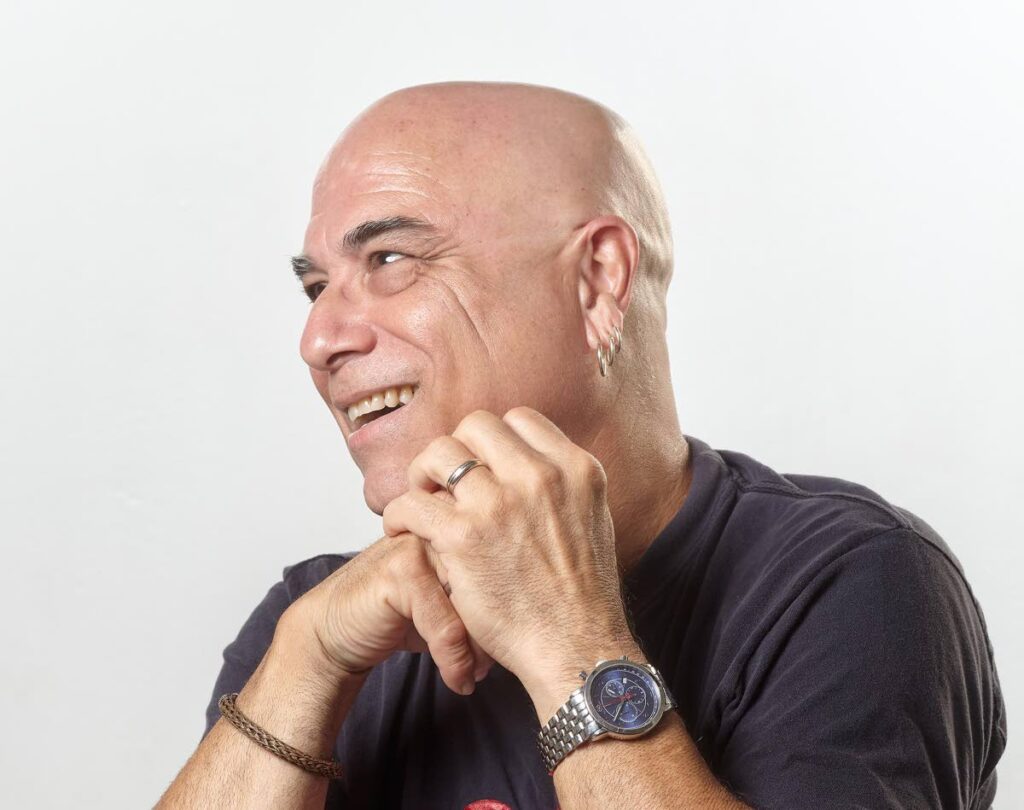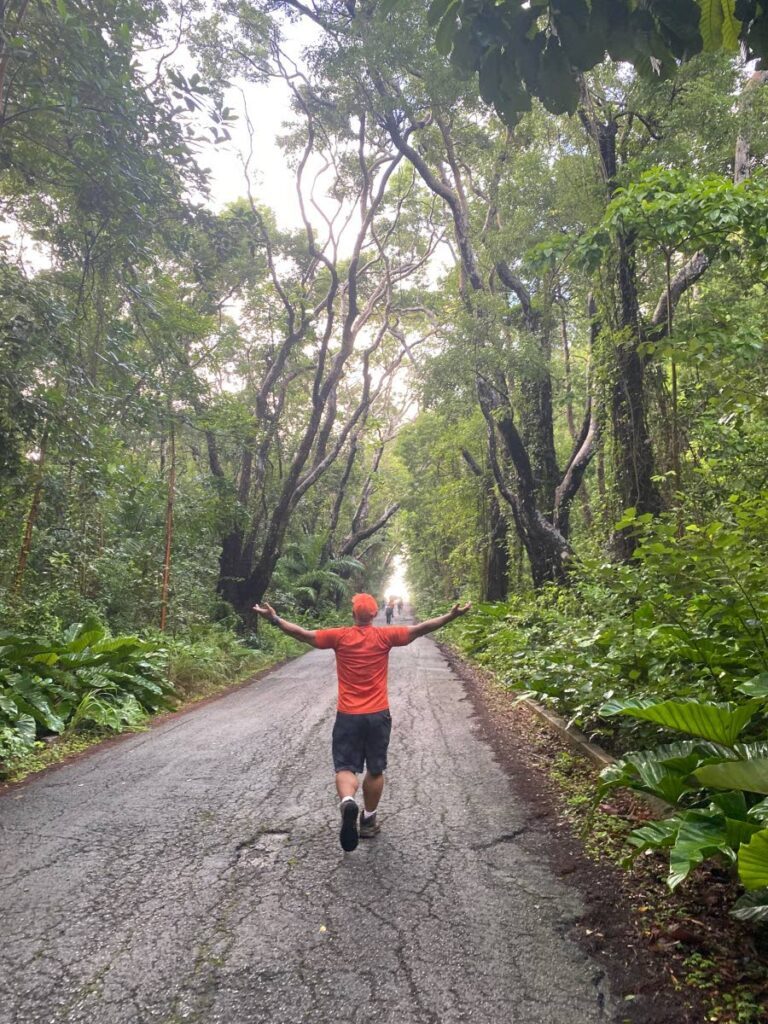Baz and the tree of life

In memory of BC Pires, June 2, 1958-October 21, 2023.
Baz and I knew each other for more than half a lifetime, though that wasn’t long enough.
We met in the newsroom, and I had the pleasure of being his colleague and his editor for almost all that time, but more than that – entwined with that – I had the privilege and the greater pleasure of being his friend.
Many people have already written about “BC” and the nature and quality and influence of his work, but there remain two things, at least for now, that I want to say about him.
Firstly, many people who have commented on his writing describe him, and it, as “irreverent,” which I’m sure he enjoyed. But I think it’s wrong.
Yes, he liked to shock people, by making fun of ideas and institutions that were considered sacred because they were old and widespread and taken for granted, but which didn’t deserve it. He took glee in being, eventually, the oldest teenage rebel in town.
But he wasn’t at all the iconoclast that people take him for. What inspired the most fiery indignation in Baz was lack of reverence for some very old-fashioned values, which he upheld fervently not from habit or because they were ancient, but because he had thought them through and concluded that they were right. He treated other people – not just other people, other sentient creatures – with kindness, decency, honesty and fairness, and expected them to aim for the same standards. And somehow he managed never to give up, to resign himself to that’s just how things are, nothing you can do about it.
As for the second thing: his best friend James Aboud outed Baz as a former believer, in an affectionate, funny, lovely piece which he wrote with Baz’s permission, and which we published on October 22, the morning after he died.
I’m going to out Baz too, as being after all a believer in…something, many years later. For over a month, I’ve been the only person left in the world who knows this story, and it feels as if it needs to be shared.
It may not mean anything. It may be pure wishful thinking. It may be about an absolutely random, trivial event. But if I’m being sentimental, you’ll have to forgive me: I’m not ready to let go of my friend yet.
Also, even if this happening meant nothing more, it shows how closely Baz noticed small things, and his ability to find beauty in them, which were among the qualities that made him a writer; it shows how he loved this world, and the people in it; and the way he could extract all the possible pleasure to be found in the here and now, which they say is one of the keys to happiness. He wasn’t always happy, of course. But he was very good at unearthing happiness and embracing it, wherever it lay.
After Baz and his wife Carla and the children went to live in Barbados, he would come to Trinidad at intervals to gather a garland of interviewees for his Trini to the Bone series of profiles (another good thing about him was that he found something remarkable to show the rest of us in every one of those people).
At home or away, Baz would religiously walk at least 10,000 steps a day, and in the past few years, before and after we were interrupted by covid, on his visits to Trinidad I became a regular-ish walking partner, round the Savannah (occasionally with Carla too) or the botanic gardens.
If it was to be a morning walk, he had a sneaky way of messaging me at 6am on a Saturday, say, to let me know: “Jude, I’m about to leave home to go and walk – fall een, nah” – and I would wake up maybe 15 minutes later, see the message and scramble to get there before he finished walking and left.
But I got there in time one Friday morning three years ago, shortly before our borders were closed because of covid. It was February 14, St Valentine’s Day, the day of love. I know the date because something happened that morning that was so striking that I made some notes about it afterwards.
There had been a little rain in the night, and it was cool, and there was still dew on the grass, and some small clouds troubling the sky.

The botanic gardens aren’t very big, so if you’re walking there for exercise, you have to make several circuits. We were on one of our loops back from the St Ann’s end of the gardens, heading south towards the Savannah.
There was a tree ahead of us: a tall but otherwise unremarkable tree, which I didn’t know, but afterwards I looked at the name on the plaque beneath it. It was a sapucaia, Lecythis zabucajo, which is related to the Brazil nut tree. It’s also known, I’ve just discovered, as the paradise nut tree. Of course it is.
This tree was starting to lose its leaves, because it was the dry season; but most were still green, and it wasn’t flowering yet.
There was a breath of breeze, and some of the dead leaves from this tree drifted down into the sunlight, so the sun shone through them from behind, even though somehow the tree itself was still in the shade. So it looked as if the light was shining out of the dead leaves, gold and scarlet and bronze and orange; they lit up as if they were alive.
When that happened, everything nearby that could move was drawn to this tree. The parrots all gathered in it to praise the morning. The other people walking in the gardens walked towards it. Two people sat on the bench closest to it.
A member of the botanic gardens staff had passed us a few minutes before, carrying a rake, holding it like a fan, prongs upward, as if they might shield her face from the sun. Then she had started raking up some of the leaves under this tree that were already on the ground; but she stopped to join everyone watching the shining falling leaves. It was as if for that moment she were the priestess or the guardian of the tree and the other people and the birds were its worshippers.
Baz and I stopped a little way off and said profound writerish things to each other, like “Wow, that’s amazing.”
And then a cloud passed in front of the sun, and the lights in the leaves went dim, and that season of phantasmal peace was over.
We didn’t say any more about it then, but we didn’t need to.
I know that because in August this year, a few weeks before Baz was told the worst news, I messaged him to say I’d plodded round the botanic gardens that morning and had thought of him.
(He was still walking then, sometimes, though he couldn’t walk as far or as fast as he used to, and he replied, “One day we’ll plod there together, one day.” One day, Baz, who knows?)
Then I asked if he remembered the “magic epiphany tree” we’d seen there one morning, years before.
He messaged back: “Can never forget that. One of the most glorious things I’ve ever seen. Could rightly say I felt we were blessed to see it.”
Which was what I’d felt too, despite being a fellow heathen, and thinking perhaps I’d read far too much into it. There was something holy about that tree and its glowing leaves and that moment. It made me think, even more than other dawns in those gardens, in any garden, of the hymn into which Cat Stevens sang new life, of “the morning/Born of the one light Eden saw play.” As the song says, it was like “the first morning”: the first morning of the world.
For those few glorious moments, that ordinary-looking tree was showing us, with the leaves that we had thought were dead, that life is all around us, in all kinds of forms, even when we may not recognise it; and that in turn we are all connected with everything around us, and that was why we were drawn to that tree along with every other living thing that could move.
If Baz believed what we saw and what we felt that morning was a blessing, then it was a blessing. As for the force that connects everything, of which we were given a glimpse that day, I think he might have named it love. If there was one thing Baz did believe in, it was love.
For the year he was ill – which was agonisingly long as well as being far too short – he put on a brave face. I was astonished by the optimism with which he spoke about his illness even in the valley of the shadow of death. In fact, I was afraid for a while that because of what turned out to be cruelly disappointed hope, he might put off some things until it was too late.
But no, he and Carla did the most important thing in time: they brought their children home to be with them. So at the end Baz was surrounded with love: the love of the people he loved most in the world and who loved him the most.
And also: the word “paradise” comes from the ancient Greek paradeisos, and that in turn comes from an even older Persian word, which means an enclosed garden or park. It’s comforting now to think of Baz walking through that garden, towards the tree at the centre whose leaves shine with their own light, walking towards it at the same time as everyone he loves, and meeting them again, at the foot of that tree.

Comments
"Baz and the tree of life"